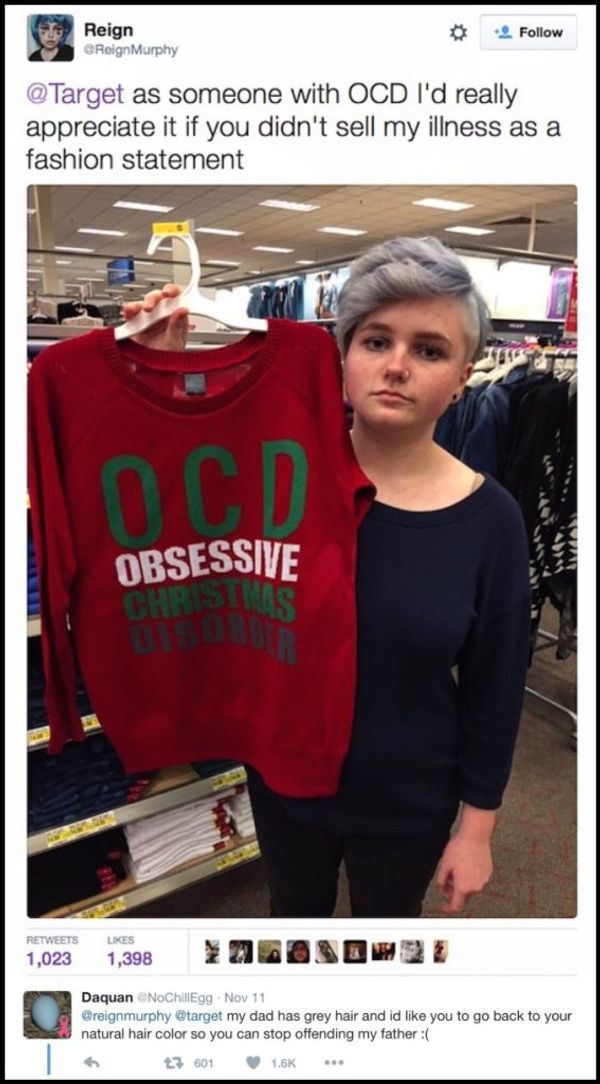Target, the popular US retailer, has come under fire for selling a Christmas sweater that has been labeled as “deeply offensive” to those living with Obsessive-Compulsive Disorder (OCD). This controversy arose after Reign Murphy, a young woman with OCD, discovered the offensive sweater while shopping at a Target store. Emblazoned across the front of the sweater was the phrase “OCD Obsessive Christmas Disorder.”

Reign expressed her displeasure through a viral tweet that garnered over a thousand retweets. In her tweet, she stated, “I’d really appreciate it if you didn’t sell my mental illness as a fashion statement.” This tweet sparked a heated debate on social media, with some internet users criticizing Target for trivializing a serious psychological disorder and questioning society’s acceptance of such behavior.

While the phrase on the sweater is often used to humorously describe those who have an intense love for Christmas, some felt that it crossed a line by making fun of a genuine mental health condition. However, it’s important to note that not all individuals with OCD shared the same sentiment. Some defended the controversial sweater, stating that they did not find it offensive. One user even commented, “As someone with OCD, Target’s sweater doesn’t offend me in the least bit.”
In response to the backlash, Jessica Carlson, Target’s spokesperson, offered an apology to those who were offended but made it clear that the company had no intention of removing the sweater from its shelves. Despite the outcry, Target stands firm on their decision.
This controversy highlights the importance of sensitivity and understanding when it comes to mental health. According to the Anxiety and Depression Association of America, approximately 2.5 million people in the US, or 1.2% of the population, suffer from OCD. This statistic emphasizes the need for empathy and respect towards individuals living with mental health conditions.
This is not the first time Target has faced controversy over its merchandise. In 2015, the retailer received backlash for selling women’s T-shirts with the word “Trophy” on the front, leading to accusations of objectification and the commodification of women.
Watch the video below to discover more about this story and share your thoughts. Let’s continue the conversation on how we can promote greater empathy and respect for individuals living with mental health conditions.





